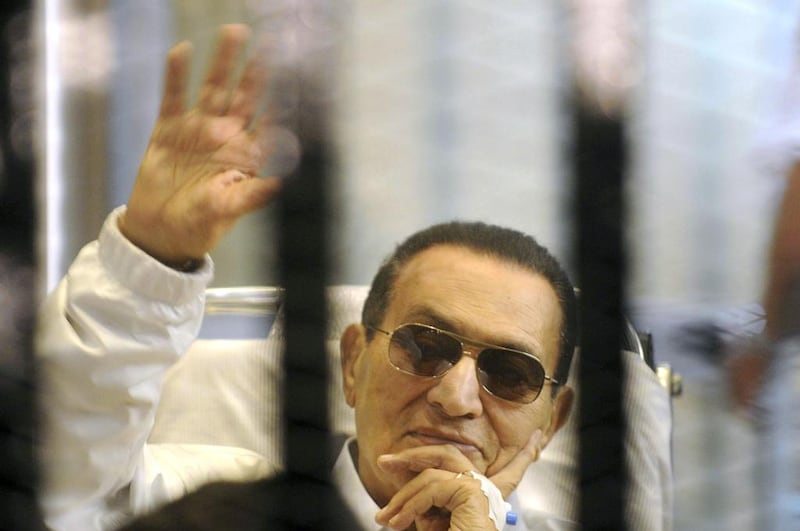Egypt’s Court of Cassation has found Hosni Mubarak innocent of involvement in the killing of 239 demonstrators during the 2011 uprising that ended his 30-year rule. The former Egyptian president was sentenced to life in prison in 2012, but an appeals court ordered a retrial that resulted in the case being dropped in 2014. However, an appeal by the public prosecution led to the final retrial and to his acquittal on Thursday.
“As expected, Hosni Mubarak was acquitted in the killing of protesters at Tahrir Square and other areas,” Saudi columnist Mishari Al Dhaidi wrote in the London-based pan-Arab daily newspaper, Asharq Al Awsat.
“Mr Mubarak’s acquittal was a matter of legal technicalities, a competent lawyer, propitious political circumstances and a [political] climate that favoured his acquittal,” Al Dhaidi noted.
The writer said that Mr Mubarak has made a significant contribution to modern history, not just of Egypt, but of the whole region.
The writer recounted Egyptian artist Hassan Yousef’s visit to Mr Mubarak at the military hospital on May 4, 2014 and the conversation between them.
“In a statement to Al Arabiya, Hassan Youssef said he asked the former president about the reason behind his stepping down.
“The president’s reply was this: I had no other choice after then vice president, Omar Suleiman, notified me that the Muslim Brotherhood had taken control of the street all the way to Tahrir Square and that they were armed and ready to kill the demonstrators if they decided to end the protests even after I had fulfilled all their demands, namely dismissing the government and dissolving the parliament and the Shura Council.
“Once these young people left the square, the revolution would end and the regime would be in control again. But the Muslim Brotherhood did not want this to happen.
“On 11 February, Omar Suleiman called me while I was in Sharm el Sheikh and told me that the Brotherhood took control of Tahrir Square and intended to kill the protesters and put the blame on the army and the regime. He asked me what to do, so I told him I would step down to save these young protesters and thwart the plot of the Muslim Brotherhood. I knew about the group’s intention to kill people, burn down the country and drag it into a civil war.”
Al Dhaidi said that some people might consider this version as Mr Mubarak’s biased opinion against his opponents, but then history is a compilation of various stories.
Writing also in Asharq Al Awsat, Saudi commentator Abdulrahman Al Rashed said Mr Mubarak had effortlessly won all the elections, thanks to a voting system that secured his victory even after its amendment.
“Even with his clearly flawed legitimacy, the former Egyptian president was never an oppressive ruler as rumoured,” Al Rashed wrote. A case in point: everyone acted openly, even the opposition, including the Muslim Brotherhood, which had its own bloc in parliament, its media and its space.
According to Ahmed Maher, a member of the April 6 Youth Movement – an opposition group founded three years before the uprising in Tahrir Square – the revolutionary youth’s initial plan during the January 25 Revolution had nothing to do with Mr Mubarak, in particular. “The protesters were merely calling for a decent life, justice, freedom and human dignity,” Maher said.
However, the writer said that Mr Mubarak’s incarceration for six years was the price he paid for his intransigence and for flouting internal and external warnings.
“Mr Mubarak had marginalised the military institution that eventually toppled him.”
Al Rashed noted that over time, many people had come to embrace the theory that claims that the January 25 Revolution would not have succeeded had the change not been to the satisfaction of the army.
He concluded that, for decades to come, people would be divided between opponents and defenders of the former president. “However, it is history and not a court ruling that will eventually decide his acquittal.”
* Translated by Jennifer Attieh
translation@thenational.ae





